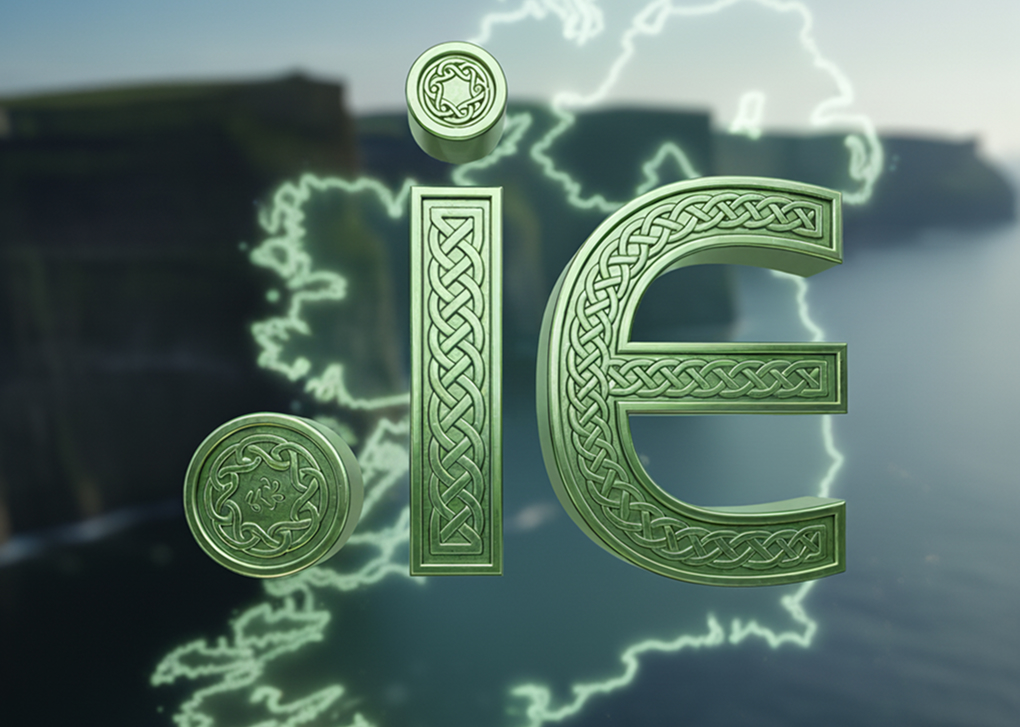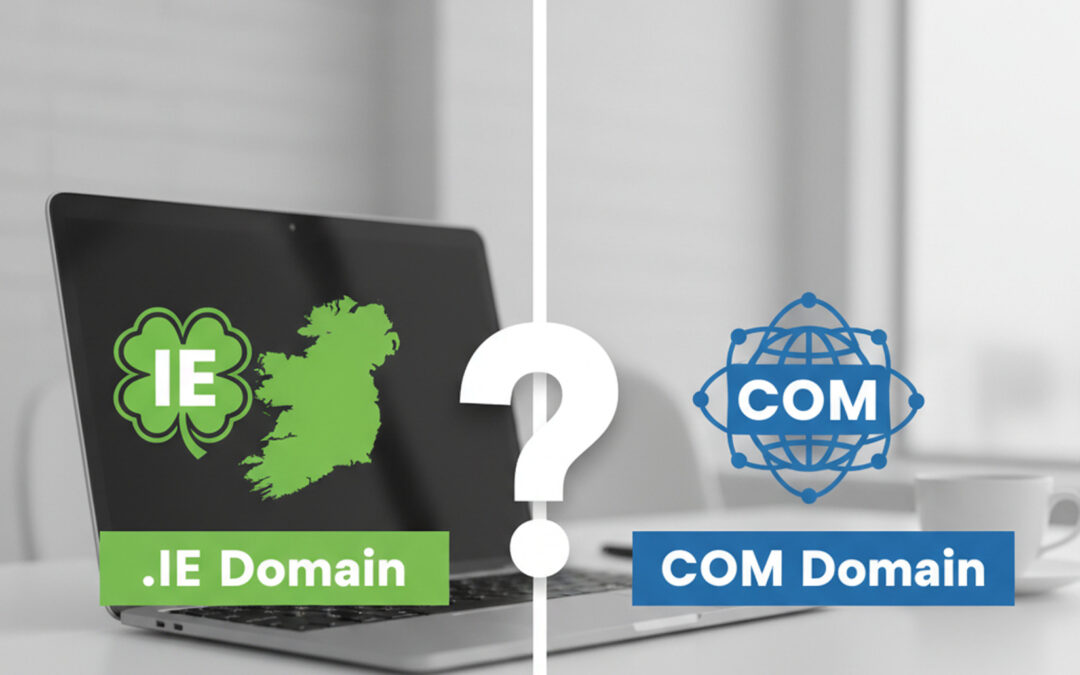Choosing a domain name is one of the first big decisions for a new business. The extension you pick—the part after the dot—is a critical piece of that choice. It sends a message to your customers before they even visit your website. This article will compare the .ie and .com domain extensions to help Irish businesses decide which is the right fit. We will look at trust, search engine performance, and your target audience to guide your decision.
What is a Domain Extension and Why Does It Matter?
A Simple Explanation
Think of a domain extension, or Top-Level Domain (TLD), as the postcode for your website. It tells visitors and search engines where you are based. For example, a .ie suggests an Irish connection, while a .fr points to France. The extension is the final part of your web address, like the “ie” in your business.ie.
First Impressions Count
Your domain extension sends an immediate signal to potential customers. It can influence whether they trust your site enough to click on it in search results. Are you a local shop or a global corporation? The right extension helps manage those expectations from the very first glance.
The Case for .ie – Ireland’s Official Domain


Building Local Trust
A .ie address clearly shows you are an Irish business. This simple fact can increase trust with local customers. People often prefer to buy from local companies to support the national economy, and they expect better customer service and faster delivery. Using a .ie domain instantly creates a sense of local identity and reliability.
SEO Benefits for an Irish Audience
Search engines like Google use the .ie extension as a strong signal that your business serves customers in Ireland. This can lead to better rankings in search results for users located in Ireland. If your primary market is here at home, a .ie domain gives you a distinct advantage in local search.
The Registration Hurdle (and Why It’s a Good Thing)
To register a .ie domain, you must prove a connection to Ireland. This might sound like a hassle, but it’s a huge benefit. This verification process filters out non-genuine businesses and cybersquatters who might otherwise register a domain just to sell it back to you at a high price. It makes the .ie space more secure and trusted, which is good for everyone.
The Case for .com – The Global Standard

A Recognised International Symbol
The .com extension is the most recognised domain in the world. It projects an international image, which is ideal for businesses planning to sell outside of Ireland. If your ambition is to reach a global audience, a .com domain is often the default choice.
No Registration Restrictions
Anyone can register a .com domain without needing to prove a local connection. The process is typically quicker and simpler than registering a country-specific domain. This ease of access has made it the most popular extension on the planet.
The Competition Problem
There is a downside to its popularity. Finding a good, available .com domain name can be very difficult. Many short and memorable names were registered years ago. You may find that your ideal business name is already taken, forcing you to choose a longer or less intuitive alternative.
.ie vs .com: A Direct Comparison
So, how do you decide? It depends entirely on who you want to sell to.
Who Should Choose .ie?
•Businesses focused on the Irish market: If your customers are primarily in Ireland, .ie is the logical choice.
•Local service providers: Plumbers, accountants, solicitors, and consultants who operate within Ireland benefit from the local trust a .ie domain provides.
•Brands building a strong Irish identity: A .ie domain reinforces your connection to Ireland and helps build a patriotic brand image.
Who Should Choose .com?
•E-commerce stores with an international customer base: If you plan to ship products worldwide, a .com gives you a global presence.
•Tech startups and SaaS companies: These businesses often aim for global scale from day one, making .com a natural fit.
•Businesses whose name is taken in the .ie space: If your preferred .ie is unavailable, a .com is a solid second option.
Can You Have Both? The Best of Both Worlds Strategy
You don’t always have to choose. In fact, the smartest approach is often to register both.
Protecting Your Brand
Registering your business name with both .ie and .com extensions is a savvy move. It prevents a competitor or another entity from registering the alternative domain and confusing your customers. Securing both versions protects your brand identity online.
How to Manage Two Domains
You don’t need to build two separate websites. Simply choose one domain as your primary address (e.g., yourbusiness.ie) and have your web developer redirect all traffic from the other one (yourbusiness.com) to your main site. This way, anyone searching for you online will land in the right place, no matter which address they type.
Which Domain is Right For You?
The choice between a .ie and a .com domain comes down to your business goals. A .ie is best for building local trust and targeting an Irish audience, establishing your brand as a homegrown entity. A .com is the global standard, perfect for businesses with international ambitions.
Your first step should be to define your target market. If your focus is Ireland, start with .ie. If you’re aiming for a global audience from the outset, lean towards .com.
Your first step should be to define your target market. If your focus is Ireland, start with .ie. If you’re aiming for a global audience from the outset, lean towards .com.
If your budget allows, the best advice is to register both versions of your domain. This simple action
protects your brand for the future and gives you flexibility as your business grows.

